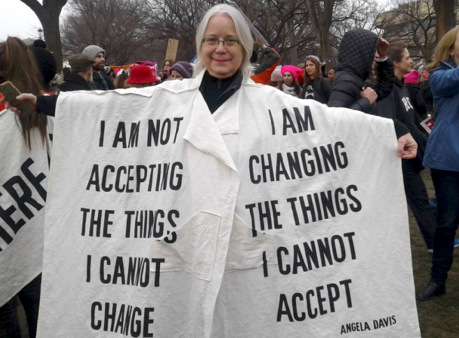If the Republican majority in Congress, emboldened by its control of both chambers and the White House, thought it would be easy to roll back health reform and other progressive gains, they have begun to learn a lesson taught to Obama early on, that it is easier to articulate hope than it is to affect change. Over the first few weeks of Mr. Trump’s presidency, a massive and in many ways spontaneous resistance movement has formed all across the country, with millions of people taking to the streets to express their unwillingness to tolerate a White House and a Congress that pursues policies that are anti-woman, anti-immigrant, anti-Muslim, and would turn our social safety net to tatters.
One of the policies that have received some of the most vocal and passionate opposition has been the repeal and as-yet-unspecified replacement of the Affordable Care Act (the ACA, or Obamacare). Repealing the ACA is a policy goal that served as the Republican Party’s white whale under the Obama administration, but one which their rhetoric and desire to implement have lagged in recent weeks. The lack of enthusiasm to promptly repeal the ACA is due to congressional Republican’s inability to design a replacement plan that doesn’t strip 18 million Americans of their health insurance in a year’s time and, perhaps more importantly, the fear of the collective outrage of millions of Americans should their health care be taken from them.
Over the past few weeks, numerous stories have been circling around both traditional and social media, showing Representatives going to extreme measures to avoid the wrath of a public that is rightfully incensed by plans to block grant Medicaid and tear apart the ACA with no concrete plans on how to sufficiently replace it. Whether it’s sneaking out of an event via a side exit or simply refusing to engage in town halls due to the anger of their constituents, members of Congress are clearly unnerved by the breadth and the intensity of the protests that have greeted them in their home districts. In fact, House Republicans were so shaken by the backlash against the prospect of ACA repeal that they convened a closed-door meeting this past Tuesday to discuss how to “protect themselves” from protesters.
It may not feel like it at times, but the power of collective resistance and protest is proving unparalleled in effecting change. If we are to save the ACA, or at least ensure that its most vital benefits survive in a replacement plan, people living with HIV and those who advocate alongside them are going to have to engage in sustained, vocal opposition to any politician who tries to snatch our health care from us. This means suiting up and showing up to town halls and rallies, even when we don’t feel like going. It means calling your members of Congress at their offices and refusing to take no for an answer when you’re told a line is busy or a mailbox is full. The HIV community’s opposition to the destruction of the ACA must be unrelenting because the only way our elected officials will act in our best interest is if they are provided with no alternative.
Yes, changing the will of Congress may seem daunting, but each individual action on the road from where we are to where we aim to be is one step closer. One of the first steps you can take is to commit to meeting with your members of Congress and letting them know the repeal of the ACA is unacceptable. For the week beginning February 20, both the Senate and the House will be out of session and in their home districts and states. Many of them will be hosting town halls or have open hours for visiting and we must make sure that our presence is acutely felt. It is important to remember that they are beholden to us and that the amount of power they wield is indirectly proportional to degree to which we are politically engaged.
If you click here, you will find a substantial, but by no means comprehensive spreadsheet that lists the office hours and scheduled events for many members of Congress in their home districts and states in the near future. Use this list and any other resources you can find to plan an action during Presidents’ Day weekend and the days that follow. Make sure that, whether it’s in person or over the phone, your members of Congress are incapable of ignoring the needs of people living with HIV and all Americans living with chronic diseases.
Question them.
Tell your story.
Share your concerns and ensure that your voice is heard and that the provision of quality health care is nonnegotiable if they want to keep their job for long. And, if you want to continue with your HIV advocacy after the actions around Presidents’ Day, there’s no better way to do so than to register for AIDSWatch, the largest annual HIV/AIDS advocacy event in America. This year, AIDSWatch is more important than ever and we need your help more than ever if we’re going to make Congress recognize the possibility and importance of ending the AIDS epidemic and protecting the policies that allow people living with HIV to get access to quality, affordable care.








Comments
Comments